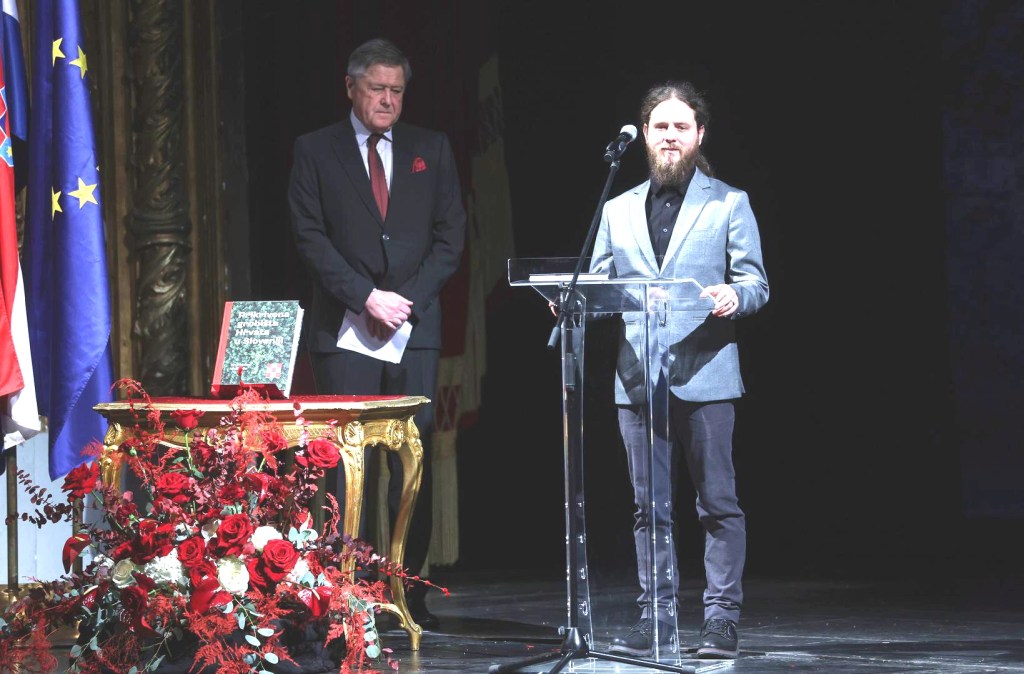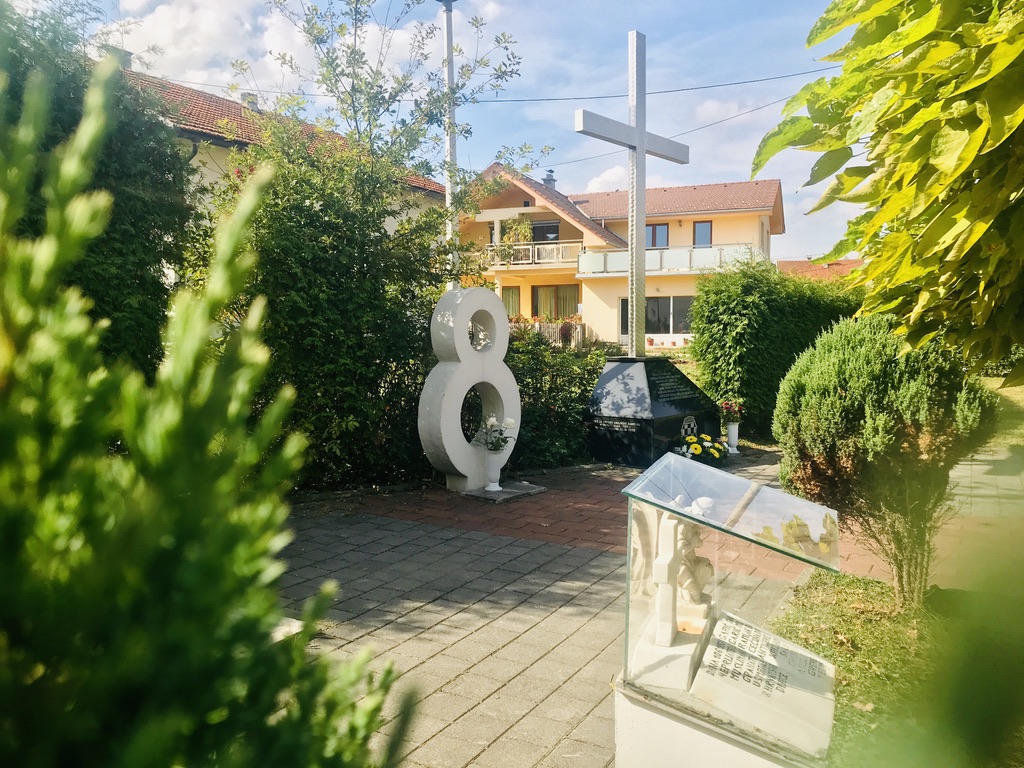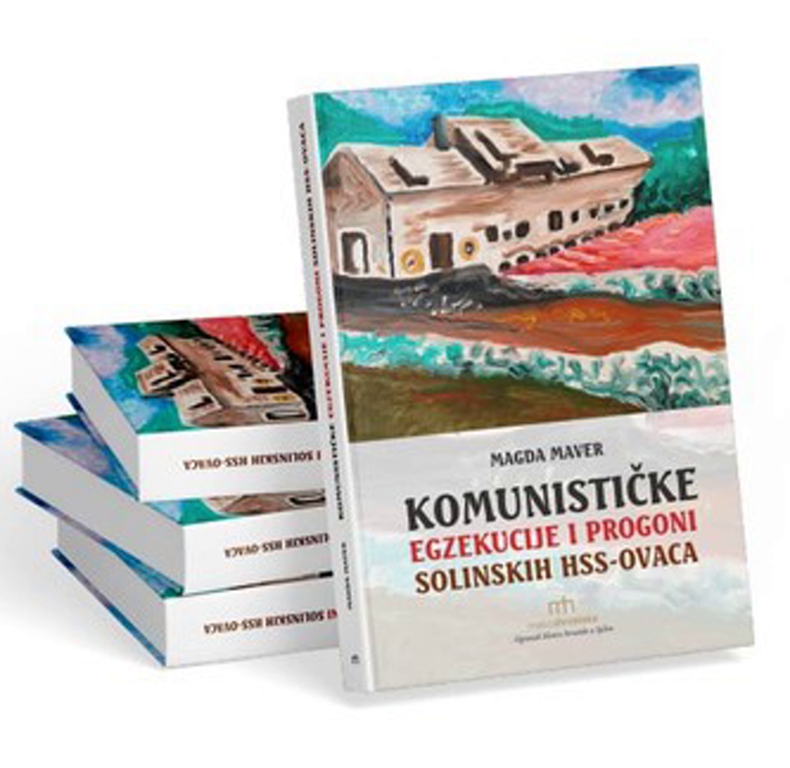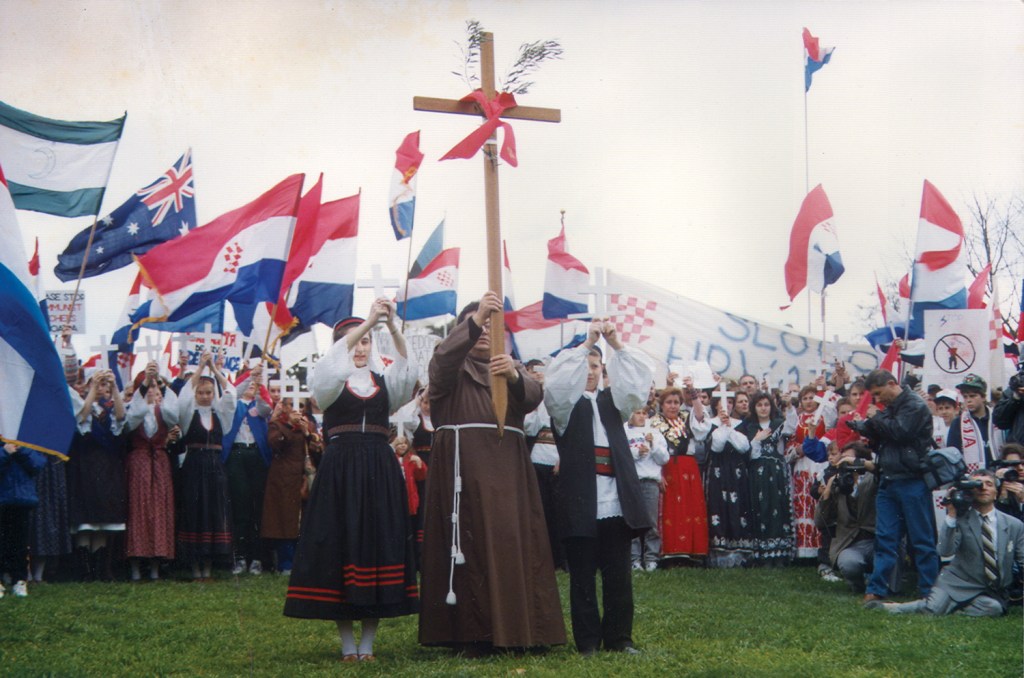
8 June 1997 during the process
of peaceful reintegration of
the Serb-occupied Croatian
Danube region into the
Croatian constitutional and legal system
Fifteen years ago today – Franjo Tudjman, Croatia’s first president and the acclaimed father of the modern, sovereign and democratic Croatia – died from a terminal illness on 10 December 1999.
His political drive in the creating of independent Croatia, tearing it away from communist Yugoslavia, rested on his idea of reconciling contradictory elements of Croatia’s WWII and post-WWII past. Like all political leaders of note he understood the power that the past has and the power collective memory has on life as we know it and on the collective memory we pass on to future generations; he also had the impressive courage to face and deal with the unpleasant truths that shaped those contradictory elements from Croatia’s history – the pro-fascist Ustashe WWII regime and the anti-fascist communist regime that followed but albeit unseated was equally strong in WWII.
As a stepping-stone in the reconciliation of the past that would solidify democracy and freedom in Croatia he voiced the idea of turning Croatia’s largest WW II concentration camp in Jasenovac into a memorial for all victims of fascism, communism and the 1990’s Homeland war. This idea had in 1997 come under sharp criticism from elements of both Croatia’s and international community. Suffice to say this move had intensified a worldwide push that maliciously branded him as an ultra-nationalist inclined towards WWII fascist ideals and gave the domestic self-proclaimed anti-fascists, such as Stjepan Mesic, a platform to speed-up anti-Tudjman, anti-Croatian independence sentiments in Croatia and wider. It was an era that was utterly cruel to the man (Tudjman) who wanted freedom and democracy for Croatia. Without doubt, the cruelty dressed in lies and deceit, came from the place from which the so-called anti-fascists aimed to protect the perceived positive reputation of the communist regime and it’s role in stamping out fascism, regardless of the fact that such a role was riddled with equally heinous crimes, if not greater, than those committed by the so-called fascist or pro-fascist regime. Humanity was not a factor in their reasoning.
It’s essential to remember that Tudjman’s efforts in reconciling Croatia’s past by way of acknowledging all victims of the past totalitarian regimes as equals occurred against the backdrop of the movement of the “Europeanisation of the Holocaust” – which did not recognise victims of communist regimes as victims of equal weight and equally deserving of human dignity. Post-WWII Europe is often compared to a collective that has a common destiny with developed shared structures in order to avoid a recurrence of the catastrophe of the Holocaust. The Task Force for International Cooperation on Holocaust Education, Remembrance, and Research (ITF) – founded in Sweden as a network of politicians and experts in 1998 – aroused much interest from most European countries and some outside it. In 2000, in Stockholm at the International Holocaust conference Holocaust Memorial Day for 27 January was proclaimed and today observed worldwide.
So, a re-narration of history in former-communist European countries from 1989 onwards and in particular the concept of a “golden era” before Communist rule had run parallel to the “Europeanisation of the Holocaust” and Tudjman’s ideas of reconciling the past had been a part of this process, although, those opposing Croatian independence chose not to see it as this. Although he did not succeed in raising the victims of the Yugoslav communist regime and of 1990’s Croatia’s Homeland War to the same deserving level as victims of the Holocaust, today, fifteen years after his death, Tudjman would direct a wide smile at the world. Despite the cruel antifascists’ attempts to prevent the truth from surfacing, the promoted “heroic” anti-fascist struggle has been gradually delegitimised along with the communist regimes and the trauma of communist crimes placed at the core of memory – not only Croatian but also European memory and memory of the wider world.
Representatives of post-communist countries in the EU demanded that communist crimes be convicted “to the same extent” as those of the Holocaust. In reaction to the conflicting memories between “East” and “West”, the European Parliament recommended in 2009 that another memorial day be introduced on 23 August, the date of the Hitler-Stalin pact in 1939, in which the victims of Nazism and Stalinism are commemorated together (the European Day of Remembrance for Victims of Stalinism and Nazism/ Victims of Totalitarian Regimes).
In the face of this reality one may indeed ask: why did Franjo Tudjman suffer such terrible vilification when in fact, all that he wanted is now actually solidified in the European Union’s canon! The whole Europe is like a monument to all victims of violence and inhumanity, just like he wanted Jasenovac to be! The only thing missing is a fuller criminal prosecution of communist crimes.
Rest in peace Franjo Tudjman – rest proud!
Ina Vukic, Prof. (Zgb); B.A., M.A.Ps. (Syd)









Leave a reply to inavukic Cancel reply